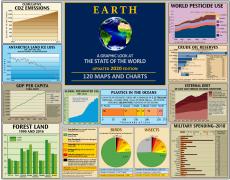Temperature
The essential data about temperature explained in 6 infographics. Detailed charts and maps covering global sea surface temperature, global temperature anomalies, historical temperature and major greenhouse gasses, fossil fuel production gap and more. Learn the truth about temperature and how it relates to the state of the world on The Global Education Project website with un-biased facts from the most reliable sources.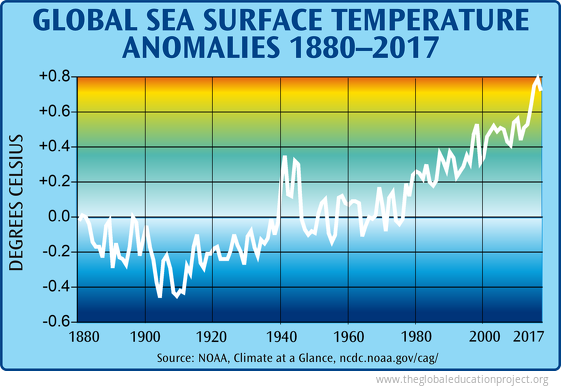 The ocean—the major heat, carbon and water reservoir of the world—is a crucial regulator of the Earth's climate. More than 93% of the enhanced atmospheric heating since the 1970s has been absorbed by the ocean, even affecting the deep ocean. The absorption...
The ocean—the major heat, carbon and water reservoir of the world—is a crucial regulator of the Earth's climate. More than 93% of the enhanced atmospheric heating since the 1970s has been absorbed by the ocean, even affecting the deep ocean. The absorption...
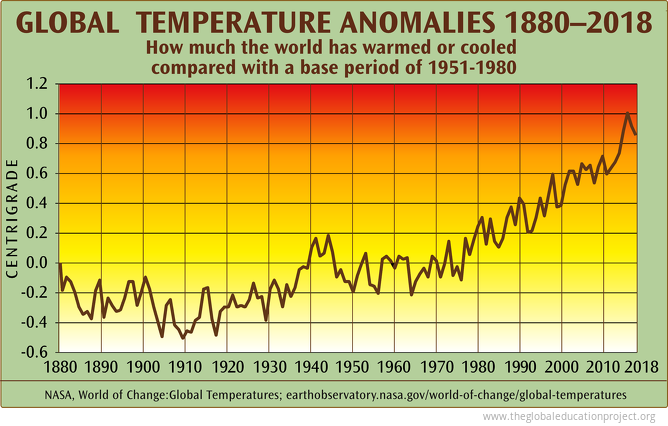 "Eighteen of the 19 warmest years all have occurred since 2001, with the exception of 1998. The year 2016 ranks as the warmest on record. This research is consistent with similar constructions prepared by the Climatic Research Unit and the National Oceanic...
"Eighteen of the 19 warmest years all have occurred since 2001, with the exception of 1998. The year 2016 ranks as the warmest on record. This research is consistent with similar constructions prepared by the Climatic Research Unit and the National Oceanic...
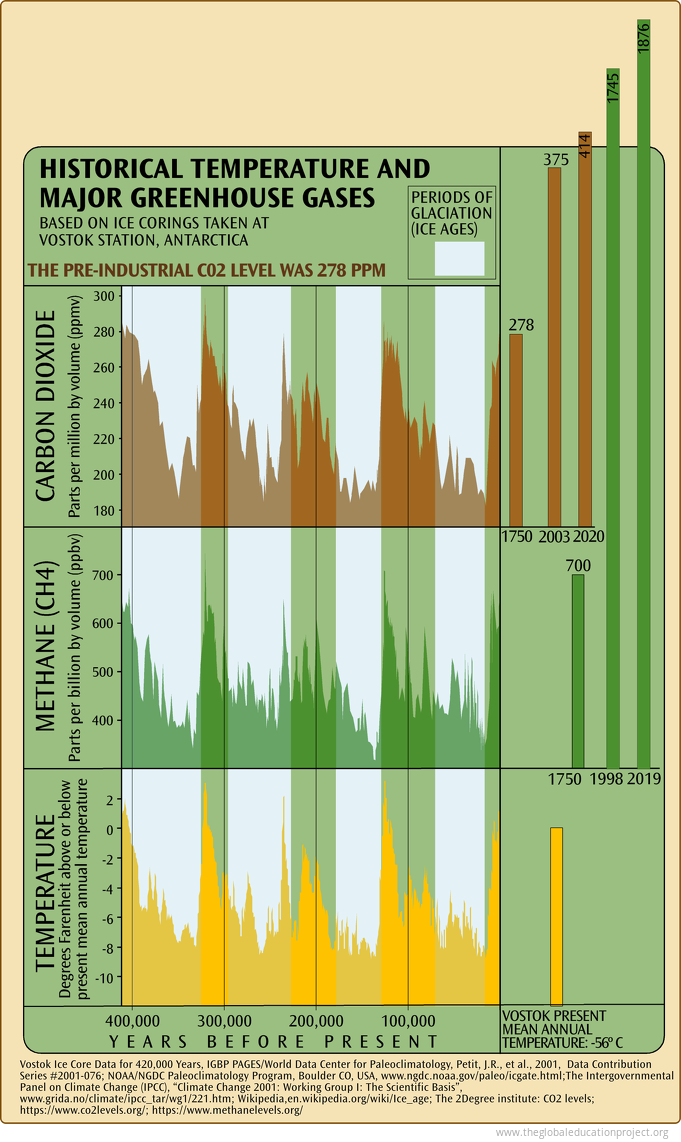 CO2 concentrations are well above historic maximum levels.* The GWP (Global Warming Potential) of methane gas (CH4) is greater than the GWP of CO2. Warming could release vast quantities of CH4 from thawing tundra and seabed methane hydrates.
*Levels...
CO2 concentrations are well above historic maximum levels.* The GWP (Global Warming Potential) of methane gas (CH4) is greater than the GWP of CO2. Warming could release vast quantities of CH4 from thawing tundra and seabed methane hydrates.
*Levels...
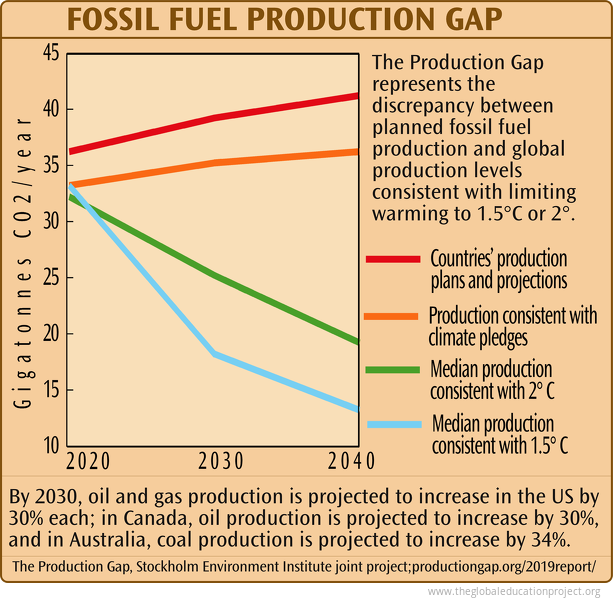 Countries are planning to produce about 50% more fossil fuels by 2030 than would be consistent with a 2°C global average temperature rise, and 120% more than would be consistent with a 1.5°C rise.
The production gap is largest for coal. By 2030, countries...
Countries are planning to produce about 50% more fossil fuels by 2030 than would be consistent with a 2°C global average temperature rise, and 120% more than would be consistent with a 1.5°C rise.
The production gap is largest for coal. By 2030, countries...
Historical and contemporary overview of greenhouse gas emissions and atmospheric concentrations—which countries emit the most CO2, total and per capita; methane; ocean warming and sea level rise; global temperature projections; glacier and ice loss.
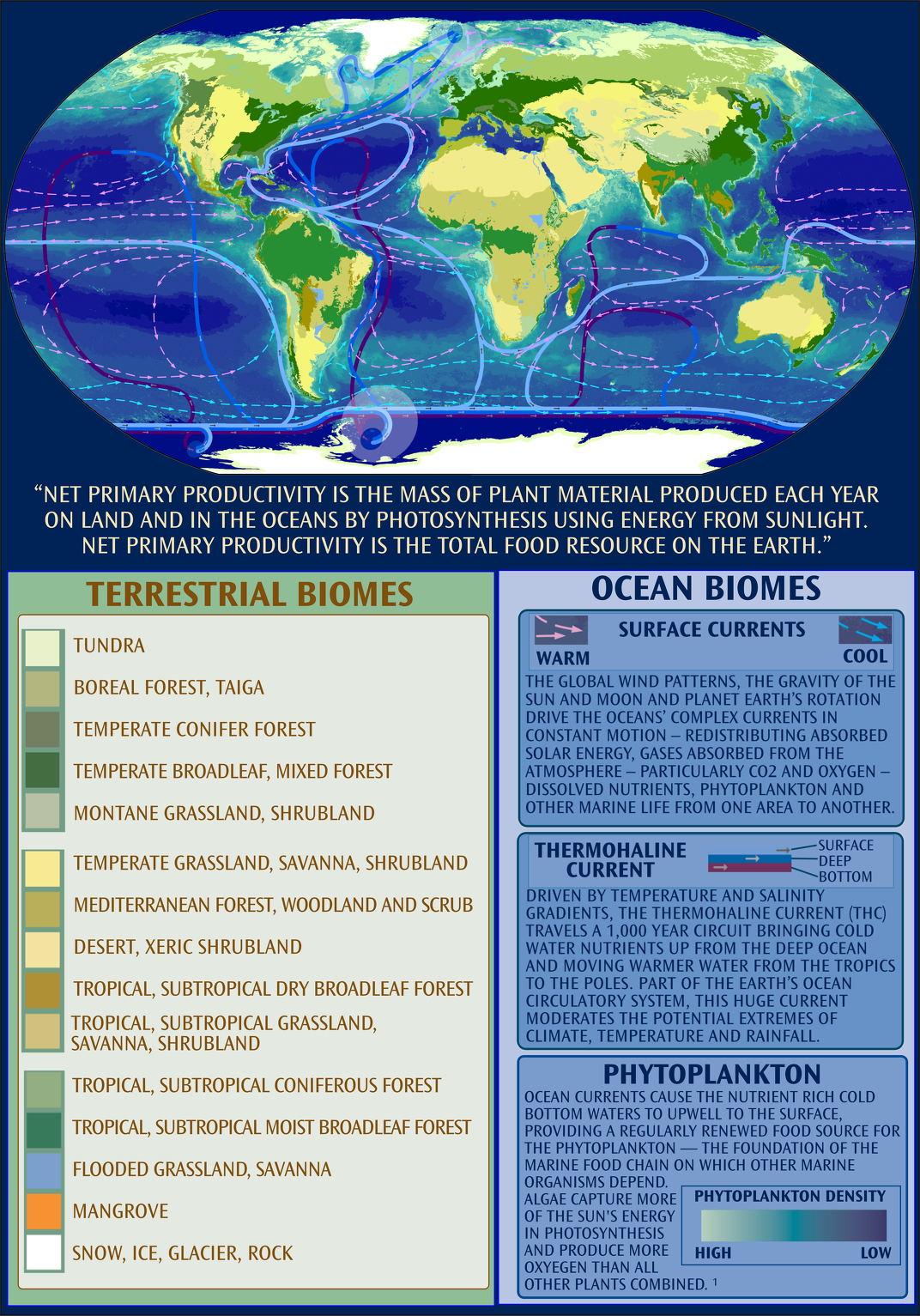 Evidence is growing that the thermohaline circulation, driven by temperature and salinity, could be slowed or stopped by cold fresh water inputs to the Arctic and North Atlantic oceans, diluting the salt concentration in the ocean. This could occur if...
Evidence is growing that the thermohaline circulation, driven by temperature and salinity, could be slowed or stopped by cold fresh water inputs to the Arctic and North Atlantic oceans, diluting the salt concentration in the ocean. This could occur if...
Page 1 of 1
Sign up for EARTH Dispatches
Enter you email below to get jaw dropping charts and maps delivered straight to your inbox.
Get the EARTH presentation
A 150 page high-resolution PDF containing all updated maps, charts and data on EARTH website; use as an information-packed educational slide show, printed booklet or a set of single-page handouts.
Learn More
